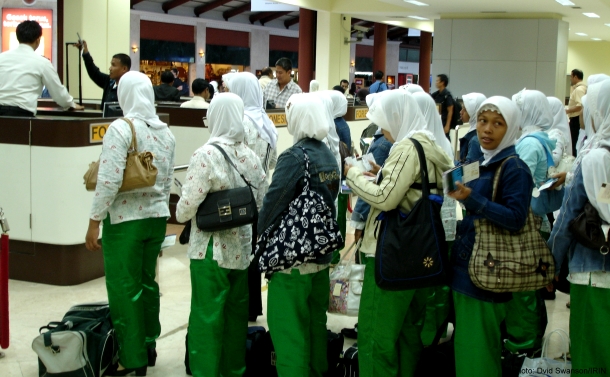[ePrayer – Pray for those people vulnerable to human trafficking]
In the 2014 Trafficking in Persons Report, the U.S. government has downgraded Thailand, Malaysia and Venezuela to Tier 3, the lowest ranking of fighting against modern-day slavery. Ironically these 3 countries are among those that promote themselves as modern and fast-developing countries.
The report cites evidence of forced labour and sex trafficking in Malaysia and Thailand. It highlights Malaysia’s problem with migrants from other Asian nations who seek work on farms, factories and construction sites only to be trapped and have their passports taken and wages withheld.
In Thailand, according to the report, there are tens of thousands of migrants from neighboring countries being exploited in the commercial sex industry, on fishing boats, and as domestic servants. This downgrading could cause some multinational companies to reconsider investments in industries accused of using trafficked labour such as fisheries, which is a lucrative business in Thailand (Thailand is the world’s largest exporter of shrimp).
And in Venezuela, women and girls are often lured from poor interior regions to tourist centers with the promise of false job offers. When they arrive, they are often forced into prostitution.
More than 20 million people worldwide are believed to be ensnared in some form of forced labour, according to the International Labour Organisation. [TIP Report, CNN, CNBC]
Meditation on Scriptures:
‘Speak up for those who cannot speak for themselves, for the rights of all who are destitute. Speak up and judge fairly; defend the rights of the poor and needy.’ Proverbs 31:8-9
When we think that human trafficking is far from us, are we aware that the prawns we eat may be caught by the modern slaves working on the fishing boat, the clothes we wear may be sewed by the forced labourers in the factories, and the domestic workers in our society may be treated as slaves and with their wages withheld. They are voiceless and destitute. Will you speak up for them?
Pray for those people vulnerable to human trafficking:
- Pray that the government of Thailand, Malaysia and Venezuela will respond actively to their human trafficking issues;
- Pray that God will rescue and heal those people who suffer from modern slavery;
- Pray for good cooperation between nations and international NGOs, and for a comprehensive and feasible strategy to stop human trafficking.










